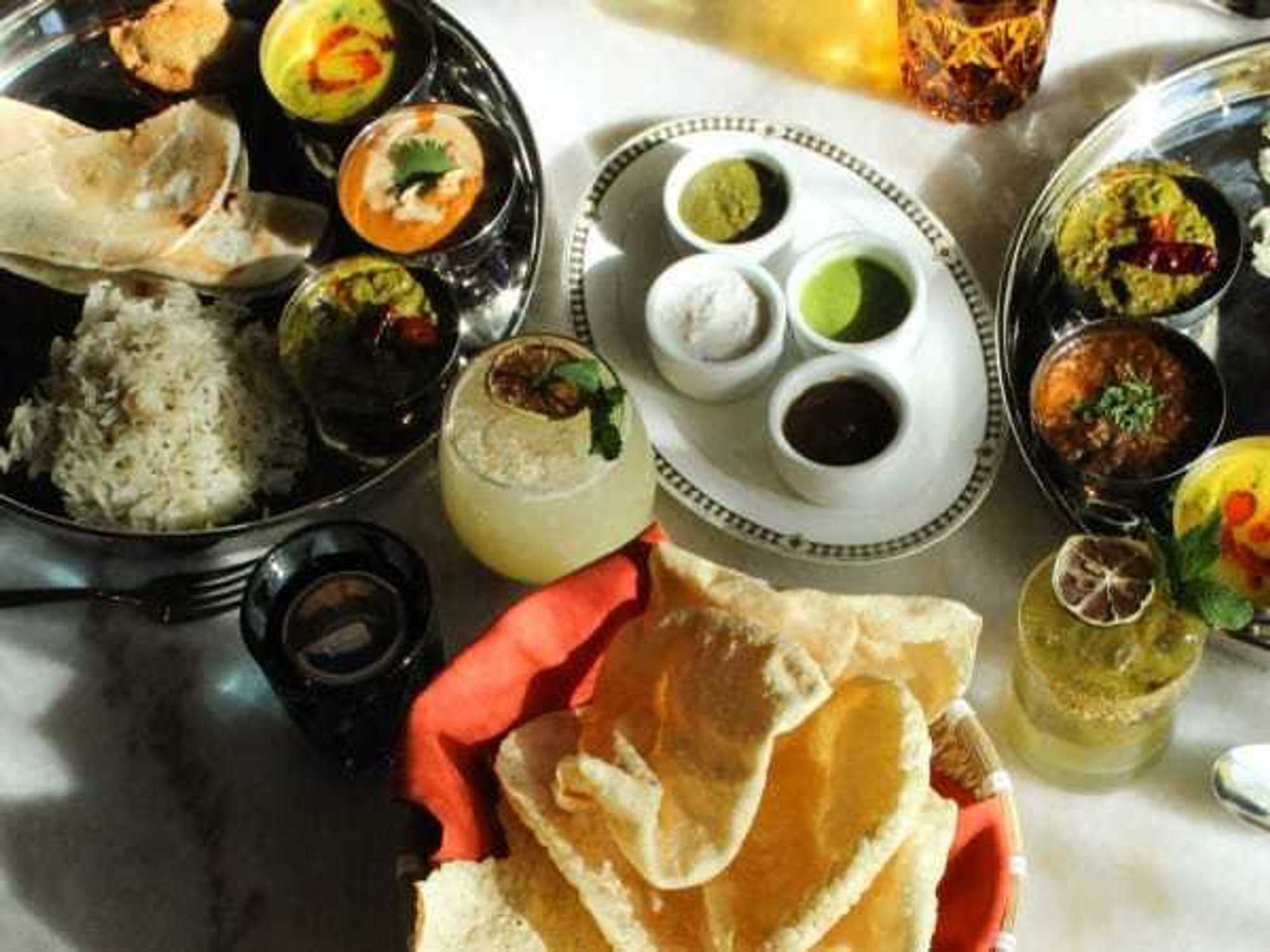new trailer in town
New trailer Schmaltz puts a veggie spin on classic Jewish deli fare
 Pastrami ReubanPhoto by Julia H/Yelp
Pastrami ReubanPhoto by Julia H/Yelp Schmaltz owner Julia Hungerford.Photo by Beth Lebwohl
Schmaltz owner Julia Hungerford.Photo by Beth Lebwohl The Schmaltz trailer is located in back of Domy.Photo by Beth Lebwohl
The Schmaltz trailer is located in back of Domy.Photo by Beth Lebwohl Schmaltz menu and seating.Photo by Beth Lebwohl
Schmaltz menu and seating.Photo by Beth Lebwohl
New York City, my hometown, needs another delicatessen like a hole in the head. Austin, on the other hand, could use a little oomph in the Jewish food department, which is why I rejoiced when I heard about Schmaltz, a food trailer on Cesar Chavez that opened in early May. Out of a small kitchen-on-wheels behind Domy books, Schmaltz owner Julia Hungerford serves sandwiches loosely inspired by the Jewish deli.
Be forewarned, pastrami lovers: These sandwiches are vegetarian.
That’s no stretch for Hungerford, who was raised vegetarian and Jewish in Tennessee. She tells me that kosher laws — biblical dietary restrictions for Jews — have inspired vegetarian recipes throughout history:
“If you keep kosher, you can’t eat milk and meat together, and you have to use separate sets of dishes for the two. It’s a hassle, and you can imagine a lot of vegetarian food came out of that.”
“If you keep kosher, you can’t eat milk and meat together, and you have to use separate sets of dishes for the two. It’s a hassle, and you can imagine a lot of vegetarian food came out of that.”
Food like falafel, for example, a chick pea-based dish of Middle Eastern origin. Hungerford talks about Schmaltz’s Falafel Sandwich ($7):
“Where I grew up in Tennessee, we had this falafel place run by a woman from Palestine. Her falafel was unlike any falafel I’ve ever had. It was green inside — cilantro and parsley gave it that color. I went through so many recipes to get the [proportions of] greens just right. I also found out this style of falafel originated with Jews from Egypt!”
Hungerford likes to suss out the roots of things, maybe because her own roots go deep — her grandparents, Polish Jews and Holocaust survivors, immigrated to the United States after WWII.
“It was a difficult situation, in some ways, growing up,” Hungerford says, “but I never took my existence for granted.” Though, she adds, the pressure was on to "make something out of nothing, the way my grandparents did."
You'll find it nice to hear, then, that Hungerford's grandmother, now 91, is kvelling over her granddaughter's new trailer, and called the other day from Tennessee to let her know.
Austinites should be kvelling, too: Hungerford cooks so smartly. For example, she grills her falafel rather than fries it, which gives it a richer flavor. She labored to find the perfect ratio of ingredients for the tahini sauce that she pours over her falafel (tahini has just sesame paste, lemon, and garlic). And, she found the best flatbread she could — New World Bakery's — to wrap it all up in.
Schmaltz’s Seitan ‘Pastrami Reuban' ($8) is well conceived, too. The Reuban, Hungerford explains, is the big macher of Jewish deli sandwiches:
“Which is funny, because the original sandwich isn’t even kosher! You have corned beef or pastrami topped with Swiss cheese and sauerkraut. It’s typically served on rye. I make my Reuban with [wheat gluten-based] seitan pastrami. I experimented a lot to get the seitan recipe right. What makes it taste meaty? Peppercorns. I thought about putting traditional sauerkraut on the sandwich, but it’s too hot in Texas. So I decided to do fresh slaw.”
She also tops her Reuban off with optional Swiss cheese (every item at Schmaltz can be made vegan), and then adds special sauce: Russian dressing with a kick. It’s got vegan mayo, ketchup and chipotle. All this goes between two slices of rye, of course.
“Every Yiddish word has a million different meanings. Schmaltz is also meant to give you the idea of richness. So, if you fall into a vat of schmaltz, you’ve fallen into something lucky."
In addition to her falafel and Reuban sandwich, Hungerford serves grilled cheese at Schmaltz. To drink, she offers a homemade Mango Lemon Kombucha ($4) that is among the most thirst-quenching I've ever had.
Impressive, but I inquire about what’s so Jewish about grilled cheese and kombucha? Not much, Hungerford cheerfully admits. She explains that she doesn’t want to get boxed in, cuisine-wise. Hungerford’s not a woman in danger of that, and her creativity strikes me at every turn. She has expertise in film and photography, and she earned her cooking chops most recently as a chef at a kid’s recreation center in southeast Austin. Hungerford’s also a musician. With a sense of humor. In fact, the name of her place — Schmaltz — is a little joke.
Hungerford’s grandparents spoke Yiddish, so she’s well aware of the literal meaning of Schmaltz: Chicken fat. You won’t find a speck of that inside her trailer, but you might find other forms of schmaltz:
“Every Yiddish word has a million different meanings. Schmaltz is also meant to give you the idea of richness. So, if you fall into a vat of schmaltz, you’ve fallen into something lucky. But a funnier meaning is that, if you’re being schmaltzy, you’re being sappy, overly sentimental. And as an artist, as someone who loves art, that appeals to me.”
I ask her if I can encourage diners to pick her brain about Yiddish. “I’m not really an authority,” she says modestly. Still, she agrees when I point out that she’s probably the most credible Yiddish authority on Cesar Chavez Boulevard.
So, if you ever want to schmooze, you know where to find her.
---
Shmaltz is located at 913 East Cesar Chavez, open Tuesday-Saturday from 12-6 p.m.
